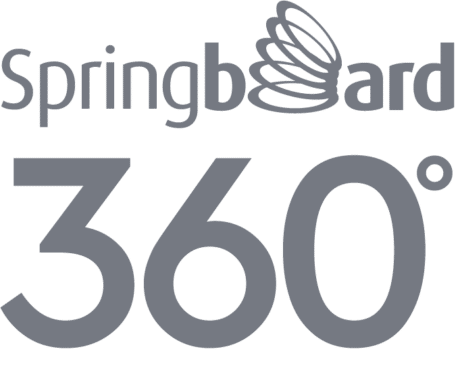
Connecting research, industry and governments to solve real world problems in Atlantic Canada
The Springboard 360° Series convened in 2021 to identify research and innovation opportunities that will enhance the lives of Atlantic Canadians and usher in the transition to a green sustainable economy. By bridging industry, research institutions and governments, the Springboard 360° Series aims to promote meaningful collaborations to achieve these ambitious goals. The 360° Series is supported by the Atlantic Canadian Opportunities Agency.
Springboard Cleantech 360° Series

The first stream of the Springboard 360° Series (SB360°) focused on Cleantech, a natural starting point given the Canadian government’s commitment to net-zero emissions. The Cleantech Innovation Committee (IAC) identified research and development already underway in the region’s post secondary institutions, and highlighted opportunities to transition Atlantic Canada to a cleaner economy.
The IAC recommended increasing engagement between industry and academia based on needs identified in the report. Connector events where held to advance the project’s objectives and funding was made available to individual projects that embraced those goals. This report is a summary of the valuable work of the SB360°: Cleantech Innovation Advisory Committee, comprising 12 experts convened by Springboard, and the Atlantic Canada Opportunities Agency to identify and articulate our regional priorities within the Cleantech sector. Click here to read the Cleantech report.
Springboard Agrifood 360° Series

This second stream embraces the goals of the 360 Series to improve the lives of Atlantic Canadians through research and innovation in the Agrifood sector. This project recognizes the unprecedented demand for food and agricultural production as the global population grows.
The Agrifood Innovation Advisory Committee identifies challenges facing the sector including include climate change, natural resource depletion, changing consumer preferences and market volatility. It also focuses on opportunities for research and collaboration in primary production, food processing and in the Agrifood supply chain. Click here to read the Agrifood report. Click here to read the Agrifood Report.

